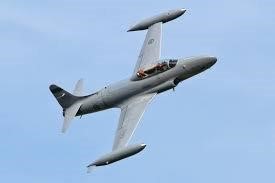What lessons from the evolution of the fighter jet can be applied to the rather less racy world of proposal management? Surprisingly, and to my inner joy, a good deal it would seem according to Peter Diamandis. In his book “Bold” he describes how Lockheed Martin rose to the challenge of developing the first fighter jets in 1943 in an astonishing 143 days. The rapid turnaround was essential to counter an imminent Nazi threat to unleash fighter jets of their own.
 This rapid prototyping and development concept has since become known and loved as ‘skunk works’ – a reference to the original foul smelling paint shop used as cover for the highly secretive fighter jet development programme.
This rapid prototyping and development concept has since become known and loved as ‘skunk works’ – a reference to the original foul smelling paint shop used as cover for the highly secretive fighter jet development programme.
Skunk works have been used subsequently as a way of disrupting ‘business as usual’ in order to evolve the next product, service or business model. In an age of constant change and ferocious competition, standing still is not an option. To paraphrase Diamandis, if you’re not disrupting yourself, someone else will soon be disrupting you.
But what does all this have to do with Proposal Management?
Skunk works are characterised by the rapid development and deployment of new products, approaches and ideas that often disrupt the status quo of entire marketplaces (think Apple and Mac, NASA and space travel). Successful Skunk work projects exhibit the following characteristics:
Big Goals – focus attention and ensure that people are persistent in achieving them.
Proposal Management certainly contains enough Big Goals. Ask any bid team assigned to a ‘must win’ opportunity and senior management will have drummed into them the consequences of failure where the contract is responsible for keeping 50% of the business going.
Extreme Isolation – only by being away from ‘business as usual’ are the project team able to push the envelope.
Really successful proposal teams pursue opportunities unencumbered by the day job. This isn’t just about having time, it’s about clearing away daily obstacles and responsibilities to give teams the space to pursue a win. With the right level of freedom they can then overcome any organisational inertia and vested interests that can limit the degree to which possible solutions are explored.
Rapid Iteration – early feedback drives development spend, fast evolution to market and constant product improvement.
Proposal teams can benefit from delivering ‘minimal viable product’ to their management, technical reviewers and customers (where possible) for early feedback. Rapid feedback cycles drive development of the best solution without wasting time maturing solutions that won’t gain management approval.
Getting senior leadership involvement and buy-in of the solution at the storyboarding stage is crucial to avoiding nugatory effort in the proposal writing stage.
An aspirational executive summary written early can provide the perfect vehicle for the sharing of a solution both internally and externally.
Intrinsic Rewards – we’re not all driven by external, money-driven rewards!
Research has found the most effective teams are driven by far more esoteric forces than simply money. They want to be part of the bigger picture. They want autonomy and control over their lives and direction. For proposal teams, being a part of the leading edge of a company’s evolution can be rewarding in itself.
Within the constraints of the formal sales processes, a forward thinking business should mandate that the first thing a Proposal team should do is to tailor the process to give them the best chance of winning good business – having given the proposal team the autonomy to find the racing line through the proposal process, many show again and again that they are willing to go the extra mile to win the opportunity.
Finally, such rewards should encourage people to volunteer into proposal team roles. Not just as a means to maximise utilisation when ‘available’ but as a rewarding career venture in its own right.
So, next time your proposal team complains about being given a poorly ventilated bid cupboard to work in, tell them it’s a skunk works project!
Fighter Jets and Proposal Management…whatever next!





